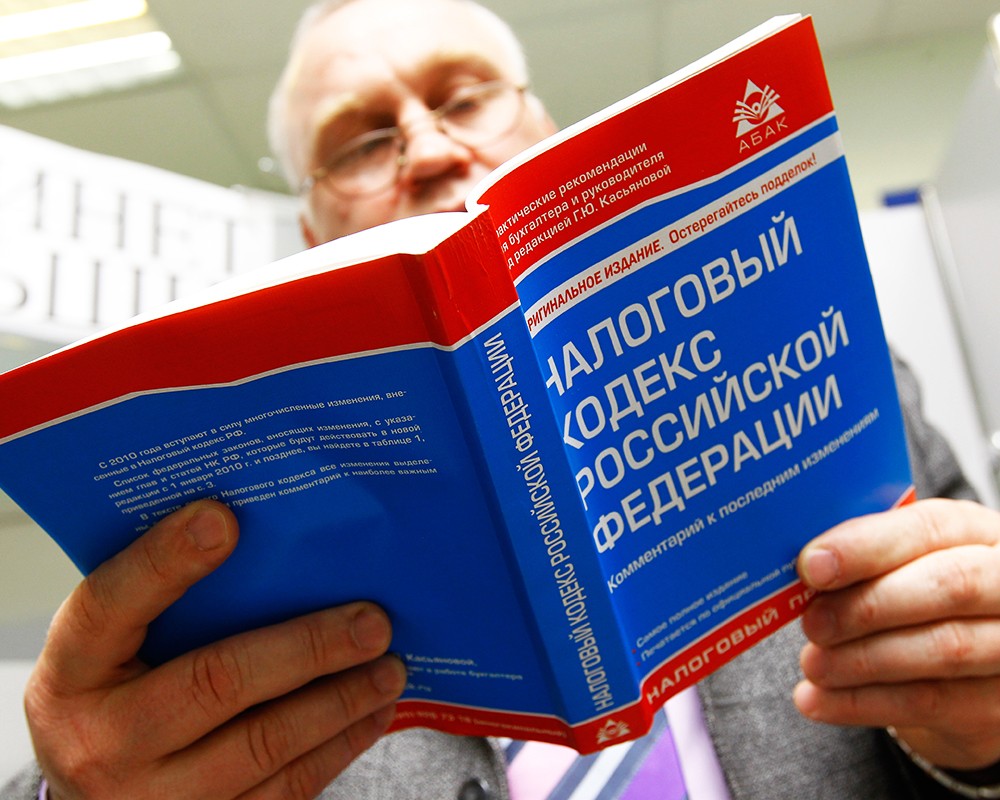There are several differences between labor and civil law contracts, including the principles of taxation and contributions. A GPC agreement may be concluded between citizens and organizations. This agreement involves the execution of the transaction, the direct participants of which are the customer and the contractor.
Definition
The concept of this form of civil contract is defined in the Civil Code. According to article 420, the term refers to a contract concluded between two or more persons, and establishing the rights and obligations of the parties, the rules for changing or terminating liability. The terms of the GPC agreement are determined voluntarily at the discretion of all participants, except when such conditions are prescribed by law or other regulatory documents.
The GPC agreement is a very popular legal form, since it fully corresponds to the nature of property and non-property relations regulated by civil law in the marketable commodity-money category. Such legal relations imply the independence and initiative of both entities. In addition, the GPC treaties are not characterized by the imperativeness of legal regulation.
At first glance, a civil contract is not much different from a labor contract. Both documents are forms of establishing economic relations between two subjects of legal relations. In addition, both types of agreement allow its participants to determine and coordinate their mutual rights and obligations, taking into account the needs of the market, individual needs of consumers and the capabilities of counterparties. Parties to labor and civil contracts are obligated to pay taxes and contributions.
Individuals and legal entities that have entered into a GPC agreement pay taxes in full. Since a civil law transaction involves the receipt of income by one of the parties, and any profit is taxable, the participant in such legal relations is obliged to pay the corresponding fees to the state treasury. In addition to tax payments, none of the subjects of a civil law contract is also exempted from making insurance contributions to the Social Insurance Fund.

What is the difference from an employment contract
Compared with the contractual relationship that arises between the employer and the employee during the registration of the work book, a number of privileges are characteristic of the GPC. This is the main reason employers opt for this form of agreement. Sometimes it is simply unprofitable for a customer to officially accept employees for work in the state, therefore a GPC / SEC contract is concluded. However, in this case, the employer faces a serious fine, because the contractor under a civil law agreement cannot be an employee. In addition to sanctions, a legal entity may be required to make surcharges of unaccounted payments on GPC (taxes, insurance premiums, interest, etc.).
The principles of regulation of labor relations are set forth in the Labor Code of Russia. Transactions concluded under a civil law contract are regulated by the Civil Code of the Russian Federation, however, the income received as a result of the transaction is also taxed. The GPC agreement also has other features:
- the purpose of its preparation may be the fulfillment of obligations under a contract, the provision of services or the transfer of ownership of property for a certain time;
- lack of conditions applicable to an employment contract (fixed salary, staffing table, timesheet, compliance with internal regulations);
- payment occurs only upon the completion of work or the provision of services, after their completion and signing of the acceptance certificate;
- the duration of the relationship is limited to a specific time period.
Which payments are required?
Regardless of the taxation system chosen by the customer, payment by GPC of taxes is an integral obligation of any entity. As a rule, the taxpayer is the party to the contract that is its actual executor, that is, the person who receives the income. In the presence of a valid GPC agreement, taxes are most often paid by a person independently. The amount of fees that must be paid to the state budget is determined by the terms of the agreement. Moreover, both individuals and individual entrepreneurs should pay taxes and contributions under the GPC agreement. In both cases, it is necessary to calculate income tax and insurance premiums (social and pension insurance).

After the final execution of the agreement of a civil law nature, the employer (he is the customer) can pay taxes independently, however, this condition should be clearly stated in the text of the agreement. This also includes insurance of the contractor against accidents, injuries, occupational diseases received on the territory of the enterprise.
It is not necessary to pay or withhold insurance premiums only if:
- the GPC contractor is a legal entity;
- performs work or provides services to a foreign citizen or stateless person outside the territory of the Russian Federation (Article 422, Clause 15 422 of the Tax Code of the Russian Federation);
- we are talking about temporary disability and motherhood.
In addition, if the contractor receives compensation from the customer for his expenses, this amount will be deducted from the tax base for GPC.
Types of Agreements
The contract of civil law may take a different form. This is determined by the scope of work or services, for which the customer turns to the contractor. Conventionally, two categories of agreements can be distinguished - contracting and the provision of services.
In the first case, the subject of the contract is the work or the specified amount of work that the contractor must perform for a fixed fee, after which he must report to the tax inspectorate on the profit received under the GPC agreement. What taxes to pay in each case depends on the terms of the contract.
By concluding an agreement on the provision of services, the contractor undertakes to provide specific services. The customer is calculated based on the results of the work done or makes an advance payment, if this is provided for by the GPC agreement.
What taxes do you need to pay the contractor
If the GPC contractor is an individual, then profits must be taxed normally. For taxpayer contractor, standard rates of 13 or 30% apply. Who pays taxes under a GPC agreement? The answer was given above: the individual should report to the tax inspectorate independently, if the text of the agreement between the contractor and the customer does not state that all payments are made by the employer. In this case, the contractor acquires the status of a non-staff member, to pay taxes and contributions for which, in accordance with Art. 208 of the Tax Code, is required to be a tax agent, that is, a customer company.

The fee received by an individual for the work done is not fully taxed by income tax. By analogy with a labor contract, the contractor has the right to use tax deductions. The conditions for applying the “discount” are prescribed in Article 210 of the Tax Code of Russia. In addition, before using the deduction right, the tax base is reduced by the amount of expenses that the contractor had to incur. For this, it is necessary to provide all checks, receipts and waybills confirming the fact that the contractor has used its own funds.
Conditions for a deduction
Now we will figure out what taxes to pay on GPC and who has the right to save on these payments. First of all, individuals with dependent children may count on a deduction. However, such a privilege is valid only if the annual income of the taxpayer does not exceed 350 thousand rubles. As for any other deductions regulated by the Tax Code of the Russian Federation, they can be applied to the tax base for a limited period of validity of the contract. In this case, the fee is exempted from personal income tax.
Otherwise, a "discount" is calculated for paying taxes under the GPC agreement, in which the sole proprietor is the contractor by agreement of the parties. No payments under a civil law agreement are accrued, since in itself the status of an individual entrepreneur implies the maintenance of appropriate monthly, quarterly and annual reports on profit. According to the taxation system used and the reporting schedule for tax and insurance structures, the entrepreneur himself makes the required payments. The possibility of applying a deduction will depend on which particular taxation regime is used by the individual entrepreneur. So, for example, private entrepreneurs who work on the “simplification” are exempt from personal income tax. Consequently, they have no reason to receive deductions from commercial activities.
Classification of tax deductions
When paying personal income tax, you should be guided by Chapter 23 of the Tax Code. This section contains provisions that determine what taxes on the GPC must be paid to the contractor, as well as the procedure for their calculation. The current legal standards that govern the ability to receive certain tax deductions are also presented here. To reduce the amount of the tax base, the tax payer must provide an application for the exercise of his right to receive a deduction to the customer.

Professional
This type of deduction makes it possible to partially exempt from GPC taxes to performers who had to incur expenses when performing work or providing the services specified in the contract. Article 221 of the Tax Code of the Russian Federation clearly states that the tax base may be reduced in case of documentary evidence of the costs incurred. If an individual or individual entrepreneur can prove that the expenditure of own funds was a necessary measure to comply with obligations under the agreement.
Thus, it is possible to return the money spent during the trip necessary for the performance of work under the GPC agreement. What the tax will be after deduction depends on the difference between the total income received for the completed transaction and own funds spent. Unlike labor relations, the possibility of sending the contractor on a business trip with compensation by the employer for travel, accommodation and other expenses is not applicable for a civil law agreement.

Standard
For this tax deduction, the contractor must contact the tax office directly. An individual or individual entrepreneur who has already paid a tax at the rate of 13% is entitled to claim personal income tax refunds paid under a civil law agreement. Individual entrepreneurs engaged in entrepreneurial activities under the simplified tax regime are not entitled to a tax deduction.
This type of preference is provided for by Art. 218 of the Tax Code of the Russian Federation. In accordance with this norm, Chernobyl veterans, veterans of the Great Patriotic War and other military operations, Heroes of the USSR, people with disabilities, and military personnel can claim a deduction. A complete list of citizens entitled to receive benefits in the amount of from 500 to 3000 rubles. for each month of the tax period, is present in the specified document.Performers under the GPC agreement who have minor children and children with disabilities are also entitled to take advantage of the tax deduction on the basis of a written application and documents confirming the right to receive benefits.
Social
What taxes are imposed on the GPC? As already noted, the contractor must pay income tax in the amount of 13% of the profit. Individuals and private entrepreneurs who have spent their own funds for the reporting tax period on:
- charity (but not more than 25% of total annual income);
- education, including the education of their children under the age of 23;
- treatment, including the cost of medical care for children, spouse, parents;
- pension contributions to non-state funds and replenishment of the funded part of the pension.
Property
It is applied to those persons who sold or acquired real estate during the term of the employment contract. By law, this type of tax deduction can only be provided by employers. Persons who have entered into a labor contract are entitled to receive compensation for personal income tax both at the end of the tax period and throughout it. However, under the GPC agreement with an individual, the customer is not entitled to compensate the executor for taxes, even if he is a tax agent.
About premiums
Having learned about what taxes GPC is subject to, it is time to move on to the next type of mandatory payments. In addition to income tax, the duty of the contractor is contributions to various organizations. Under civil law and labor contracts, fixed rates apply for calculating the amount of insurance premiums. Compulsory social payments for individuals are calculated as follows:
- 22% of the full amount of remuneration, taking into account income tax, is transferred to the Pension Fund of Russia. This year, the size of the insurance base is 1,021,000 rubles. If the profit is higher than this amount, an additional 10% is charged.
- 5.1% - social tax, which goes to the funds of compulsory health insurance.
- 2-14% - the amount is calculated depending on the degree of threat to health and risk when performing work or working conditions of the contractor.

As for insurance for temporary disability and injuries, the organization pays these types of contributions from the contractor’s fee under the GPC agreement only when it is expressly stated in the text of the agreement. If the activity the customer specializes in involves the use of preferential rates for insurance premiums under civil law contracts, then the preferences will also apply to the calculation of payments to the state budget.
At the same time, it is important to understand that customers withhold and transfer insurance premiums not to the benefit of the funds, but to the account of the tax office. Insurance contributions and GPC taxes with an individual are paid only if the existing agreement implies the obligation to perform contract work or provide unique, copyrighted services. If a civil law agreement is drawn up on the basis of a lease of premises or a cash loan, social contributions are not transferred to the municipal budget.
In contrast to the contract, the transaction, the subject of which is not only the provision of services, but also the transfer of property rights, has some features during execution. So, the clause of the agreement on the receipt of income from the customer should be divided into two lines: the first indicates the remuneration subject to taxes and contributions, the second indicates financial receipts from which no fees are charged.
Who can claim a decrease in the insurance base
As in the case of taxes, when calculating the amount from which insurance premiums will be deducted and transferred, the base can be reduced by subtracting the expenses incurred by the contractor. Most often, such a need arises in the presence of formalized relations under an agreement involving the payment of royalties or the acquisition of intellectual property rights. Any, even the smallest expenses, must have documentary evidence. If the contractor does not have the opportunity to provide all checks, invoices and other payments, the Tax Code provides for the possibility of writing off unconfirmed additional expenses in the following percentage ratio:
- up to 20% on literature of the art or scientific genre;
- up to 25% when writing music;
- no more than 30% when creating sculptures, illustrations, photographs;
- up to 30% on financing aimed at modernizing the production sector;
- 40% maximum when creating sculptural and decorative works, processing musical works for films, staging performances, opera, show ballet, etc.
Features of tax reporting under a GPC agreement
The conclusion of a civil law agreement requires the consent of both parties to withhold and transfer the mandatory fees to the Federal Tax Service. In addition to fiscal reporting, a customer having the status of a legal entity submits reports to the Pension Fund of Russia in the form of SZV-M. This document indicates not only full-time employees, but also performers under GPC agreements. It is important to take into account that incorrect information in the report is the basis for charging huge fines to the tax agent, since the instruction does not provide for the correction of errors in this document.

According to a similar principle, reports are sent in the form of SZV-STAZH. A set of documents is sent to the FIU for the previous reporting period no later than the first of March of the current year. Moreover, the information is provided on standardized forms of strict reporting appropriate for each individual form.
The execution of civil law contracts is more preferable for employers, since when concluding a labor contract with an employee, he loses the opportunity to reduce insurance and tax bases, as well as saving on the payment of personal income tax transferred to the municipal budget.
At the same time, these privileges allow unscrupulous entrepreneurs to use the system of civil law relations to evade taxes. If such a violation is confirmed, the entrepreneur faces the charge of thousands of fines. That is why, during the execution of the GPC contract, both the contractor and the customer must carefully study the wording and conditions of the document.









